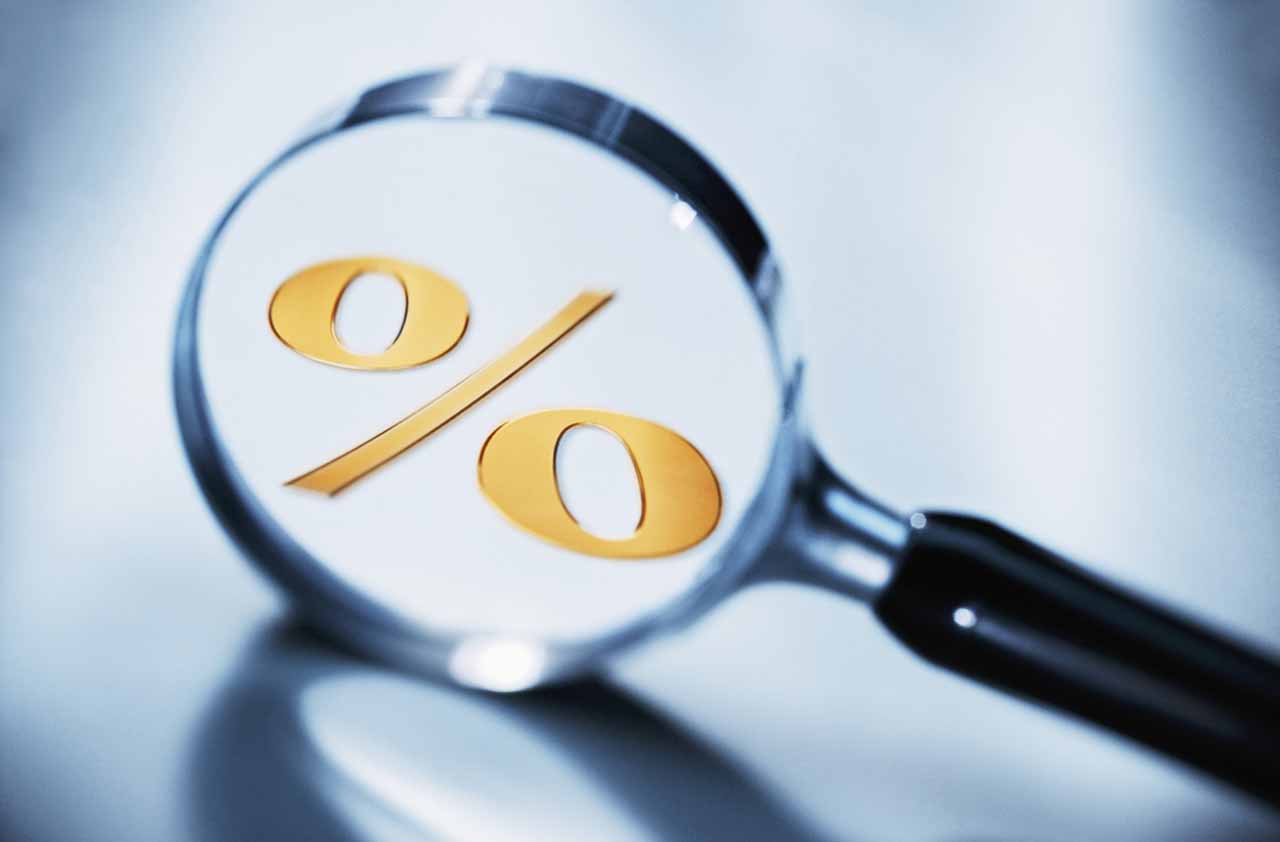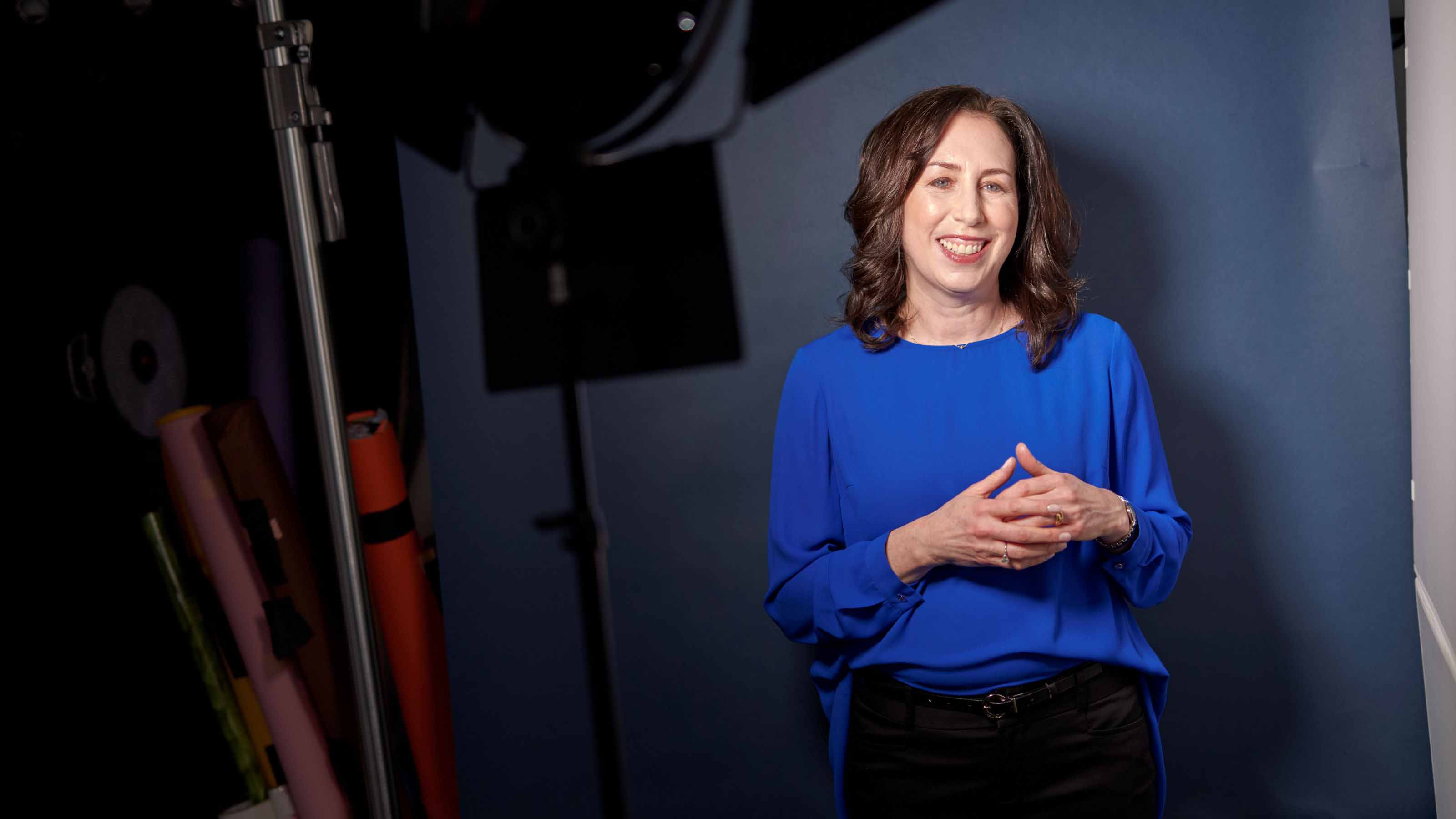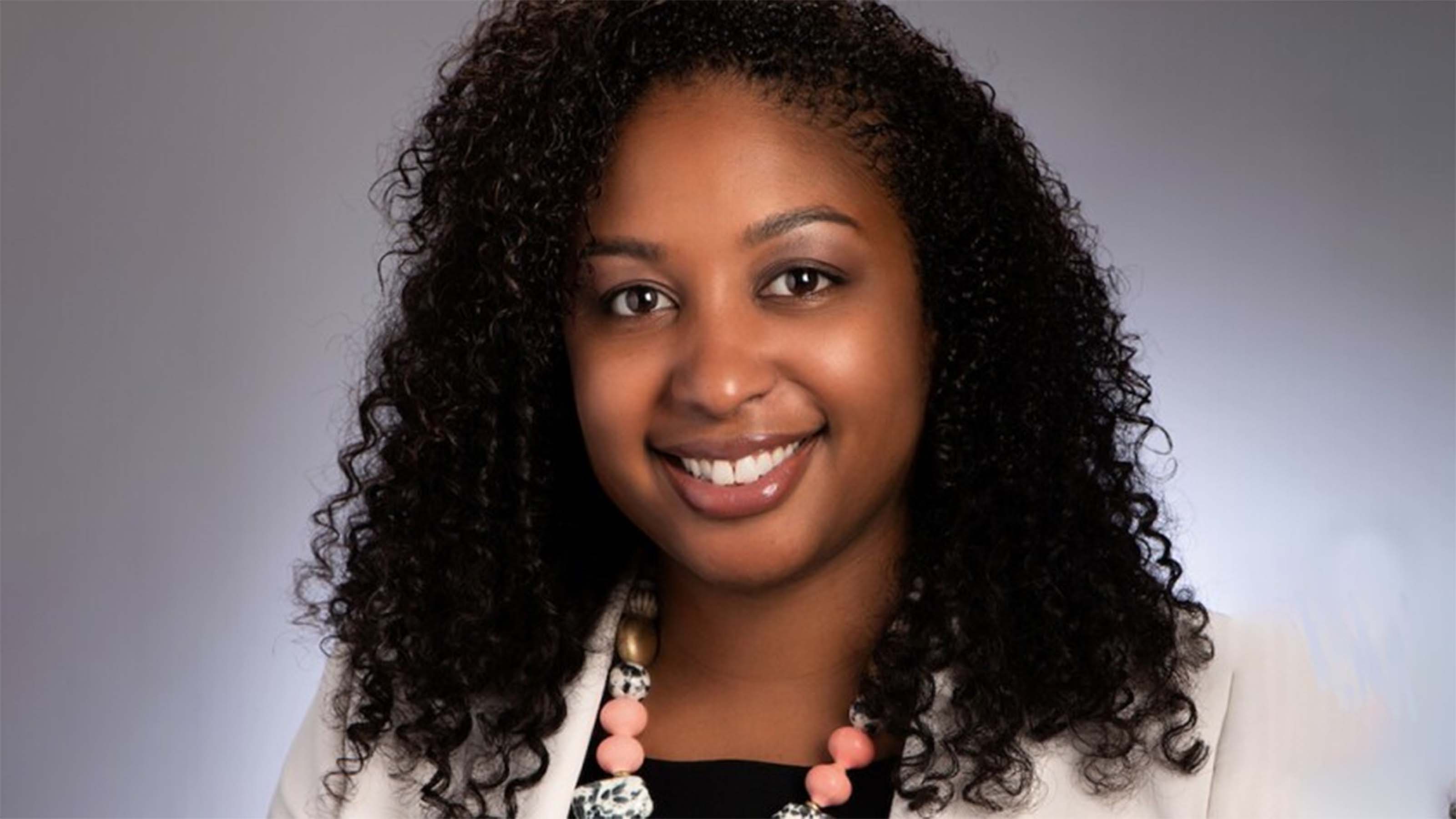Interest Rates at Zero
Bankrate.com's Greg McBride joins our hosts Sandy Block and Ryan Ermey for a discussion on the repercussions of a prolonged period of low interest rates. The pair also recommends mutual funds that hold up during down markets.

Profit and prosper with the best of Kiplinger's advice on investing, taxes, retirement, personal finance and much more. Delivered daily. Enter your email in the box and click Sign Me Up.
You are now subscribed
Your newsletter sign-up was successful
Want to add more newsletters?

Delivered daily
Kiplinger Today
Profit and prosper with the best of Kiplinger's advice on investing, taxes, retirement, personal finance and much more delivered daily. Smart money moves start here.

Sent five days a week
Kiplinger A Step Ahead
Get practical help to make better financial decisions in your everyday life, from spending to savings on top deals.

Delivered daily
Kiplinger Closing Bell
Get today's biggest financial and investing headlines delivered to your inbox every day the U.S. stock market is open.

Sent twice a week
Kiplinger Adviser Intel
Financial pros across the country share best practices and fresh tactics to preserve and grow your wealth.

Delivered weekly
Kiplinger Tax Tips
Trim your federal and state tax bills with practical tax-planning and tax-cutting strategies.

Sent twice a week
Kiplinger Retirement Tips
Your twice-a-week guide to planning and enjoying a financially secure and richly rewarding retirement

Sent bimonthly.
Kiplinger Adviser Angle
Insights for advisers, wealth managers and other financial professionals.

Sent twice a week
Kiplinger Investing Weekly
Your twice-a-week roundup of promising stocks, funds, companies and industries you should consider, ones you should avoid, and why.

Sent weekly for six weeks
Kiplinger Invest for Retirement
Your step-by-step six-part series on how to invest for retirement, from devising a successful strategy to exactly which investments to choose.
Ryan Ermey: The Fed tells us that interest rates are likely to remain at zero for the foreseeable future. What does that mean for borrowers, savers and, well, everyone? Bankrate.com's chief financial analyst Greg McBride joins the show to fill us in during our main segment. On today's show, I highlight mutual funds that hold up during stock market downswings, and Sandy quizzes me on which tax documents you should keep and which you should ditch. That's all ahead on this episode of Your Money's Worth. Stick around.
- Episode Length: 00:34:09
- SUBSCRIBE: Apple Google Play Spotify Overcast RSS
Ryan Ermey: Welcome to Your Money's Worth. I'm Kiplinger associate editor Ryan Ermey, joined from a distance by senior editor Sandy Block. Sandy, how are you hanging in there?
Sandy Block: When you say "from a distance," it makes it sound like I'm in New Jersey. I'm just across the river, Ryan. I could probably wave at you. It's not that far away. It just feels far away.
From just $107.88 $24.99 for Kiplinger Personal Finance
Become a smarter, better informed investor. Subscribe from just $107.88 $24.99, plus get up to 4 Special Issues

Sign up for Kiplinger’s Free Newsletters
Profit and prosper with the best of expert advice on investing, taxes, retirement, personal finance and more - straight to your e-mail.
Profit and prosper with the best of expert advice - straight to your e-mail.
Ryan Ermey: Yeah, well look, I'm sitting here in my sweats, pretty comfortable. My t-shirt today has an image of Princess Diana wearing a 76ers uniform. So it's all good. We're just kind of playing fast and loose here. So for this opening segment, I wanted to talk about the markets a little bit. The S&P has bounced back. We are recording here on April 30th so I only have data through the 29th. We're still sitting about 13% down from the all-time high on the S&P. Obviously, there was quite a bit more of a precipitous drop than that in February and early March as we were really getting into the beginning of this.
Sandy Block: Yeah. 13% actually doesn't seem that bad at this point. It's like, okay, I can deal that. Yeah.
Ryan Ermey: But the thing is, we are expecting... It's not like we're just going to be smooth sailing from . . .
Sandy Block: No, no, no chance. Yeah.
Ryan Ermey: . . . here on out. And so something that I wrote about for the upcoming June issue of Kiplinger's Personal Finance is investing in stock mutual funds that tend to lose less when markets decline. Now the logic behind this is that there's more than one way, and we've talked about this before on the show, I think maybe way back when, but there's more than one way to outperform the market over full cycles. And one of the ways to do it is to strategize so that your fund is either just keeping up or kind of maybe lagging the market a little bit when the market is really going well, but to hold up quite a bit better when stocks plummet. And if you think about some really simple math, a 50% decline in an investment requires a 100% return to break even.
Ryan Ermey: So the idea here is that you can get market beating returns with these kinds of funds, but with less volatility. You get a much smoother ride. The next time the market declines precipitously -- like we saw before -- you might be less tempted to look at your equity holdings. See a big scary red number and sell out of equities. My story mentions five funds and in order to qualify for my screen, the fund had to have beaten . . . these are all large cap stock funds . . . they had to beat the S&P 500 on each of the last five drawdowns of 15% or more. That starts with the '07 to '09 bear market and ends with the most recent market decline. So I'm going to mention three of them here, Sandy. What do you think?
Sandy Block: All right, hit me. Hit me.
Ryan Ermey: Okay, so the first one is called Akre Focus (AKREX). And remembering that I need to give people symbols here, it is . . .
Sandy Block: Tickers, please.
Ryan Ermey: Yes, A-K-R-E-X. In each of these instances, I'm going to give you folks the investor shares. It might be different if you're investing through a 401(k) or something like that. The strategy of this fund, stocks have to meet the manager's criteria, which they call the three-legged stool. So first leg, firms with consistently high returns on equity, which is a measure of profitability and sustainable competitive advantages over peers. The second leg is about having honest and skilled executives running the show at the firms. And, finally, the third leg is that firms have to have a history of wisely reinvesting in the business and plenty of cash to do so. Now, if a stock is reasonably priced, they'll buy, and really they don't hold many stocks. Not many stocks meet these criteria and when they don't, the managers are happy to let cash pile up if they can't find values.
Sandy Block: Interesting.
Ryan Ermey: At the end of the year, in 2019, they held about a 17% cash stake, which is pretty big.
Sandy Block: But probably looks good now, right, because yeah, yeah . . .
Ryan Ermey: Well, exactly. The fund held up beautifully during the recent market slide and in March the cash pile had shrunk to about 10% from that 17% as the managers started to really slowly get into some of the stocks in their portfolio that they saw as undervalued. But you can see how this approach works in down markets. They're only looking really, really high quality stocks and hold a significant amount of cash when high quality stocks can't be found at a good price. So when things go on the downswing, the cash helps bolster things.
Sandy Block: Okay.
Ryan Ermey: The next one I want to talk about is Parnassus Core Equity (PRBLX). P-R-B-L-X is the symbol and their strategy's really all about mitigating risk. Now, Parnassus as a firm is an ESG-oriented strategy. That means they're investing in firms that score well on environmental, social and governance criteria, and that's really all about managing risk. Firms that have bad governance, that are dumping oil into the water and doing all kinds of things like that.
Sandy Block: They're out, yeah.
Ryan Ermey: Well, then they just court a lot of risk -- whether it's from regulators, from incurring fines or just sort of doing badly in the public eye. They screen for companies with strong enough financials to withstand major shocks to the business, favoring highly profitable firms with ample cashflow, widening profit margins. You'll sense a theme here. We're looking for high quality stuff. During the most recent downturn they're always looking at the best and worst case scenarios for stocks over the next three to 10 years in their portfolio.
Ryan Ermey: The bigger ones have the narrower range of outcomes, if you will, Sandy . . . the ones that are far less likely to decline. And amid the current bear, they looked at all of their stocks, about 40 in their portfolio at the moment, gave each of them a ranking from one being rock solid firms to four being ones with high or unknowable risks. They pared back their riskiest names and added to some, your Microsofts, MasterCards, Clorox.
Sandy Block: Clorox, oh baby.
Ryan Ermey: . . . that can expect.
Sandy Block: There are no wipes anywhere.
Ryan Ermey: Yes, firms that can expect a longterm steady demand from customers. I should mention now that all three of these funds have longterm track records against the S&P 500, for instance, the Akre fund has returned 16.2% over the past decade compared to 11.6% for the S&P 500. This Parnassus fund, since the lead manager took over in May 2001 the fund has returned 9.2% against 6.6% for the S&P 500 with 13% less volatility, so pretty excellent. And the last one I want to talk about is a little bit out of the box, Sandy, because, and the fund is called Amana Growth (AMAGX). Now, the Amana funds invest in line with Islamic principles, which to a lot of listeners may sound like a bit of a niche -- but if you look at the firm's longterm track record, I think it holds appeal for all different types of investors.
Ryan Ermey: So the initial screen rules out stuff that the Islamic scripture forbids. We're talking firms that make money from alcohol, tobacco, pork processing, and the like. But the big one is that Islam prohibits borrowing and lending money with interest. Financial firms are excluded as are heavily indebted businesses, which generally rules out telecoms, energy firms and utilities firms. Now if you're thinking to yourself, 'well that sounds like it could have come in handy recently' -- well, it has.
Sandy Block: It did. That's right.
Ryan Ermey: It really, really paid off not to hold energy recently, just like . . .
Sandy Block: Negative oil prices.
Ryan Ermey: Yeah. In 2008, Sandy, what was it probably good not to hold?
Sandy Block: Banks.
Ryan Ermey: Financials. Exactly right.
Sandy Block: Banks.
Ryan Ermey: They really have a longterm track record of avoiding some of these problem areas. They've held up fabulously well during the recent market turbulence and over the past 15 years, the 11% annualized return crushes the S&P 500 by 2.3 percentage points. They are also an ESG fund. They're also looking for funds that score highly on environmental, social and governance criteria and they're also looking for firms with a longterm competitive advantages over peers. In this case we're looking for firms that are also growing earnings at a quite prodigious rate.
Ryan Ermey: All-in-all three funds with excellent track records and that will help really smooth your returns over time so that you're not getting these big peaks and troughs in your portfolio. At least ones that aren't as extreme as those in the S&P 500. So we will be putting the story up. I don't know if it'll be online in time for the release of this podcast. I will go back, make sure that it goes into the show notes as soon as it goes up. And if you're a print subscriber, be sure to look out for it for all five funds in the June issue of Kiplinger's Personal Finance. Coming up, Greg McBride explains what a zero interest rate world means for you. Don't go anywhere.
Ryan Ermey: We are back and we are talking the Fed today. As we record today on April 30th, the Fed has been in open market committee meetings. To break all that down, we have Greg McBride. He is the chief financial analyst at Bankrate.com. Greg, thank you so much for coming on.
Greg McBride: Thanks for having me.
Ryan Ermey: For folks who don't know, why have consumers and investors historically watched the Fed? Which interest rates does the Fed actually have influence over?
Greg McBride: Well, the Fed effectively sets the price of money -- if you want to think of it that way. They do that with their benchmark . . . what's known as their Fed Funds Rate, which is the rate that banks pay to borrow from each other on an overnight basis. But that rate then trickles downstream, impacts the prime rate that borrowers are charged and is the basis for many credit cards, home equity lines of credit, even some adjustable rate mortgages and other adjustable rate products, some small business loans. When the Federal Reserve either raises or lowers that rate, it ripples out in a lot of different ways in terms of not only borrowing rates but rates that are earned on savings and other market instruments.
Greg McBride: And then the market also responds to it too, not just the yield that government bonds pay, but bonds that are priced relative to government debt. And then the stock market. The stock market is, they're looking at future profits and discounting that back to the present value, but they discount that back at an interest rate that when the Fed reduces that interest rate, that gives them a greater present value on those future earnings. So it really impacts the pricing of financial assets, of savings returns, and rates that are paid to borrow.
Sandy Block: So Greg, I believe interest rates now are zero and I believe the Fed said yesterday that they will remain at zero for quite some time. So given that, does the Fed still matter to consumers? I mean, what more can they do?
Greg McBride: Yeah, I would argue they matter more than ever. And you're right, they've brought the interest rate down to essentially zero. But what they're doing behind the scenes, it's not as evident as what we see with interest rates, but the liquidity that they've been pumping into credit markets, the ability for consumers to even get a mortgage right now is in large part because the Federal Reserve essentially stepped up to the table with a blank check and said, "We will buy as many mortgage backed securities as we have to." And that when lenders know that they can sell that loan and take the proceeds to make another one, that's when they're happy to make the loan. They don't want to get stuck holding the bag.
Greg McBride: So whether it's consumers getting a mortgage, a business who's looking to borrow money in the credit markets to buy inventory or make payroll and even states and municipalities that need to borrow to cover budget shortfalls, all of those avenues of the credit markets are now open because of the actions that the Fed has taken. And the importance of that really can't be overstated because a functioning credit market is to an economy what oxygen is to a fire.
Ryan Ermey: Now you mentioned the importance of providing oxygen to the economy, but so much of the economy is currently effectively shut down. Do low interest rates still have an impact on the economy even amid such a widespread shutdown?
Greg McBride: We do see an impact in terms of the cost of existing debt. For example, mortgage rates are at record lows. So those that are looking to refinance a mortgage, that's a good way to shave $100, $150 a month off of your monthly payments. Credit card rates are at three year lows, home equity lines of credit -- the lowest in about two and a half years. The cost of servicing those debts has been coming down. But where low rates will really pay dividends is on the other side of this. When we're refiring the economy, consumer confidence is on the rebound, people are optimistic about the way things are headed as opposed to fearing what might be around the corner. That's the point where having the backdrop of low interest rates, that's going to spur the consumer and business borrowing and spending that is going to be necessary to reflate the economy.
Sandy Block: So Greg, you mentioned credit card rates and while they have come down, it doesn't seem like they've come down as much as say rates on mortgages and other things. And I think a lot of people who are struggling to pay off credit cards would say that they think their rates are still really high. Is there a disconnect in that market between what the Fed does and what banks actually charge?
Greg McBride: Well, the rates are higher, no question. The average credit card rate is over 16%, but it's actually down more than a full percentage point in just more than a month. And that's attributable to the actions that the Fed has taken. So I think it's more a matter of, on a relative basis, credit card debt is a lot higher more so than how much it's come down. Credit card rates have come down a lot more than mortgage rates in that respect. But they're higher because it's unsecured debt. It's the first debt that gets discharged in a bankruptcy. And so the rates that we pay as borrowers or the rates that businesses pay to borrow or even governments reflect the risk of that borrower. Credit cards reflect the risk of default or bankruptcy and that's why they carry higher rates.
Ryan Ermey: So in general, what are borrowing conditions like for consumers now and what can they expect as the economy eventually starts to reopen?
Greg McBride: Credit has started to tighten and this is typical in a recession. We see consumers with marginal credit are finding that it's a tougher go. Lenders are looking for higher credit scores, bigger down payment requirements. Some corners of the jumbo mortgage market, jumbo mortgages don't carry a government guarantee. So some lenders have just stopped offering certain types of loans in that arena, because they can't find a buyer for it and they don't want to get stuck holding the bag. So we do see tightness of credit. Another step that's really kind of impacting consumers across the board, card issuers, they are closing down unused credit cards. If you've got a credit card in the drawer you haven't used it in a while, there's a good chance they're going to close that down if you don't use it soon. Cutting back the credit lines, just limiting their exposure. So we do see tighter credit consistent with what we see in a recession, but that's not something that changes quickly. The likelihood is as delinquencies and defaults rise, that credit will grow even tighter.
Sandy Block: Greg, we've been talking about borrowing, but let's flip this over and talk about saving. Bank savings rates are negligible and yet some people who are getting their stimulus checks and don't need the money right away might want to put it in a savings account for future emergencies. Is there any way to eke out any better rates in this environment?
Greg McBride: Well, putting it in a savings account is a good move. I mean, we found that back in January, at a time when unemployment was at a 50-year low and we'd had an economic expansion for nearly 11 years, even at that point, just 41% of Americans could pay an unplanned $1,000 expense out of their savings. Those stimulus checks, even tax refunds or the money that you're not spending at the movie theater, restaurants or ball games, that's all money that can be used to pad your emergency cushion right now. And the place to do that, look at online savings accounts. Most banks pay literally next to nothing on savings accounts, like you said, negligible. But the top-yielding online savings accounts are still above 1.5% and they're still federally insured, just as your bank down the street.
Greg McBride: We do have a list at Bankrate.com. I would encourage listeners to check that out if you're looking for a place to earn a better return on your savings and you can link that to the checking account you have at your current bank. So you know you don't have to overhaul your day-to-day financial habits. It's a supplement to that, not a replacement for it.
Ryan Ermey: Yeah, and we've certainly been talking a lot about how people can deploy any kind of extra money that they may see coming in as a result of this pandemic. Whether as you mentioned, it's your stimulus check, your tax refund or just the difference in what you're spending. But for the millions of Americans who have lost jobs, who are unstable when it comes to maybe paying their upcoming bills, do you have any advice for those people?
Greg McBride: Yeah, I mean start by doing the things like filing for unemployment, if you're eligible. Look and see if you're eligible for things like food stamps or Medicaid, but then contact your creditors. We see payment relief options on a scale that we have never seen before, but you have to raise your hand, you've got to reach out and ask for it. It's not going to come to you. So I can't stress how important it is for those that have had a job loss, a furlough, an income reduction as a result of the pandemic to reach out to your mortgage lender, the bank or credit union that has your car loan, your credit card issuers and explain your situation so that you can get payment relief. Whether it's forbearance that puts on hold the requirement of making a monthly payment or it's just something like skipping a payment or two on your credit card or waiving interest for a couple of months. Those are all the type of things that are on the table if you're proactive and call up and ask for it.
Ryan Ermey: Well, fantastic advice, Greg, we really appreciate having you on here. Where can the listeners go to find all of the wonderful stuff that you're working on?
Greg McBride: Yeah, thank you, at Bankrate.com. It's a personal finance website. We have, I mentioned, the listing of the best savings account yields, but it's also a great place to shop for every other financial product if you're looking to refinance the mortgage or looking for a lower rate credit card. We also have free calculators and content that we're constantly publishing to the site so you get the news that you need to manage your finances.
Ryan Ermey:Well, excellent stuff. Go and check it out. And Greg, thank you again for coming on.
Greg McBride: Thanks for having me.
Ryan Ermey: How long should you hang on to those pay stubs? Sandy quizzes me and tells you all about your tax documents next.
Ryan Ermey: We are back and before we go we have a pop quiz segment on something that Sandy knows a lot about and that I know genuinely very, very little about. So what is it, Sandy?
Sandy Block: Well, Ryan, I believe you've already done your taxes, right?
Ryan Ermey: I sure have.
Sandy Block: And I am, because Virginia did not give us until July 15th to file, I am filing my taxes as soon as we are done, recording today.
Ryan Ermey: Hey.
Sandy Block: When people file their taxes, usually they have two questions, "Am I going to get a refund?" But the second one is, "What do I need to keep and what can I throw away?" Because a lot of times, depending on your situation, you have a lot of documents and you worry that you might get audited or something like that. So I thought we'd do a little . . . I'll ask you a few questions Ryan and see if you can guess about how long you should keep some of these things. And to start before I go, I should point this out. The IRS has three years to audit your return, but if you cheat, it can audit you indefinitely.
Sandy Block: So if you're playing fast and loose, you should keep all of your documents because there's no statute of limitation on fraud and more seriously, if you have a side gig or your own business, you might want to keep those documents longer. Not because you're cheating, but because you do have a higher audit rate than other people because you're not having taxes automatically withheld. The IRS tends to look harder at the self-employed than other people. So with these caveats, I'll start with this one, Ryan. How long do you think you should keep your pay stubs?
Ryan Ermey: Oh, baby. All right. So I had a big drawer full of them in my desk at the office. I'm going to say two years worth of pay stubs.
Sandy Block: Actually, you only need to keep them for one year. You might want to check them against your W2 when you get it. And if everything looks right and it matches up, you can shred them. And you can take a similar approach with monthly statements you get from your brokerage firm. Once you get your year end statement, and Everything looks okay, you usually don't need to keep those monthly. So those are things you can conceivably get rid of. Okay, what about your W-2 or W-2s and your 1099s from financial firms, your canceled checks for charitable contributions or documents supporting your mortgage deduction? How long do you need to keep those things?
Ryan Ermey: Oh, baby. All right, so first of all, it should be noted that I have all of these saved digitally because I'm absolutely no good at filing things away. But I can find these things. And I'm going to say you should probably have, well, if the risk for audit is three years, I'm going to say three years worth.
Sandy Block: Exactly right. Since the IRS has three years after the due date of your return or the date you file it, you should hold onto those documents. Anything that supports the stuff that you put on your return and that would be, again, canceled checks, your W2s, anything that if the IRS said, "We don't believe that you gave $5,000 to an animal shelter," you want to hold on to those receipts so you can prove that you did. Now this is easier to do if you're like most people and you don't itemize because you don't have all these deductions to support. But three years is a good rule. Now here's one, Ryan, I think will be interesting to you that actually may be relevant to people now. How long do you need to hold onto a document that shows that a stock you bought, that you thought would make you rich, is now worthless?
Ryan Ermey: Now, my instinct would be to say for however long you can carry over the capital loss, right? So I think you can carry it over a year. I'm going to say a year after the tax year that you could have taken the loss.
Sandy Block: Well, I think once you've taken the loss, that's okay. But the answer is seven years, which is how much time you have to claim a bad debt deduction or a loss from worthless securities. And while that seems like a long time, I've written about this before, it can often be very hard to prove that a security is actually worthless. Like you may have bought some high flyer that you can't sell, but if someone out there, if the company isn't completely liquidated and there's somebody out there who will pay $1.50 for that stock . . .
Ryan Ermey: A penny for it, yeah.
Sandy Block: Yeah. Then you can't claim it as a worthless security. You can take a loss, but you can't claim it as a worthless security. So seven years is a good one for that. Okay, just a couple more. If you have a taxable investment account, how long do you need to keep records showing your purchases for that account?
Ryan Ermey: Two years.
Sandy Block: No, you need to keep them until you sell.
Ryan Ermey: Oh my god.
Sandy Block: Well, and here's why . . . because now technically your brokerage firm is supposed to keep a record of the cost basis of stock purchased in 2011 or later and mutual funds that were purchased in 2012 or later. But just to be safe, you should hold onto these things because when you sell these investments, you want to show how much you paid for them, because that will reduce the amount of tax that you have to pay. So the records showing what you paid for something you should keep until you sell it. Otherwise the IRS could make you pay taxes on the entire proceeds without backing out what you paid and nobody wants to do that. This is the last one and it's sort of similar. How long should you keep documents showing home purchase documents and receipts for improvements to your home?
Ryan Ermey: Well, if you say it's similar, I'm going to say until you sell the home.
Sandy Block: Well, kind of. Actually three years after you've sold the home. So yeah, until you've sold the home plus three. Now most people don't have to pay taxes on home sale profits, because there's such a large taxable exclusion. But just in case you've done really, really well, you bought in a really hot market and you actually made more than $250,000 or $500,000 if you're married, you're going to want to have, for the same reason that you keep the purchase documents of your investments, you want the purchase document of your home to show how much you paid for it so you don't have to pay taxes on the entire proceeds. And likewise, if you made significant improvements to your home, you can add that back to the basis and that will also reduce the amount of taxes that you have to pay.
Sandy Block: If you're going to sell your house for that much -- or even if you don't -- it's a good idea to keep your home purchase documents. These are just good things to have. And as you pointed out, Ryan, you don't need anymore to have voluminous file cabinets to keep track of this stuff. You can store it digitally. I've had good luck in actually finding a lot of documents, because I'm not good at this, from my financial institutions, but don't count on that. Back things up. Your financial institution could go away, they could make a mistake. So I think it's a good idea to have backups and these things also provide a very useful history of your finances and you could find them useful for other reasons other than filing your taxes. You want to buy a home or a car, you need to show how much money you have. So that does it. And we've got some good stuff on our website about these rules that you can look at and we'll put them in the show notes.
Ryan Ermey: Yeah. And just to quickly go back to something you said. Yeah. So every time I file my taxes and I have to like look back over a couple of years to see what my basis was and something or other, Fidelity keeps my documents here and H&R Block keeps my documents there, and Navient keeps my student loan documents. But it's good to just go in and make a PDF, just so you always have them because you don't know how long, A, you're going to be with a particular financial institution and have your password and have an account and all that. And you also don't know how long they're going to hold onto it. So go ahead and make the PDFs now, you might as well before anything expires. And yes, Sandy, a fantastic quiz, one that really puts a damper on my victory earlier in our company Zoom trivia win.
Sandy Block: You get no Amazon gift card today from me.
Ryan Ermey: Yes. Yes. Well yeah, a little bit of humility for your boy here. So that's it, folks. We'll put all of this stuff up in the show notes, and thanks for listening. That'll do it for this episode of Your Money's Worth. For show notes and more great Kiplinger content on the topics we discussed on today's show, visit Kiplinger.com/links/podcasts. You can stay connected with us on Twitter, Facebook or by e-mailing us at podcast@kiplinger.com. And if you liked the show, please remember to rate, review and subscribe to Your Money's Worth wherever you get your podcasts. Thanks for listening.
Links and resources mentioned in this episode
Profit and prosper with the best of Kiplinger's advice on investing, taxes, retirement, personal finance and much more. Delivered daily. Enter your email in the box and click Sign Me Up.

Block joined Kiplinger in June 2012 from USA Today, where she was a reporter and personal finance columnist for more than 15 years. Prior to that, she worked for the Akron Beacon-Journal and Dow Jones Newswires. In 1993, she was a Knight-Bagehot fellow in economics and business journalism at the Columbia University Graduate School of Journalism. She has a BA in communications from Bethany College in Bethany, W.Va.
-
 Dow Leads in Mixed Session on Amgen Earnings: Stock Market Today
Dow Leads in Mixed Session on Amgen Earnings: Stock Market TodayThe rest of Wall Street struggled as Advanced Micro Devices earnings caused a chip-stock sell-off.
-
 How to Watch the 2026 Winter Olympics Without Overpaying
How to Watch the 2026 Winter Olympics Without OverpayingHere’s how to stream the 2026 Winter Olympics live, including low-cost viewing options, Peacock access and ways to catch your favorite athletes and events from anywhere.
-
 Here’s How to Stream the Super Bowl for Less
Here’s How to Stream the Super Bowl for LessWe'll show you the least expensive ways to stream football's biggest event.
-
 PODCAST: Tax Breaks for College Finance with Kalman Chany
PODCAST: Tax Breaks for College Finance with Kalman ChanyPaying for College Paying for (ever-pricier) college is a challenge that this consultant meets head on with highly specific guidance.
-
 PODCAST: Car-Buying in an Inflated Market with Jenni Newman
PODCAST: Car-Buying in an Inflated Market with Jenni NewmanBuying & Leasing a Car With cars both scarce and expensive these days, what to do if you want – or need – a new ride? Car-buying strategist Jenni Newman of Cars.com shares some tips. Also, more on the magical 9% savings bond.
-
 PODCAST: How to Find a Job After Graduation, with Beth Hendler-Grunt
PODCAST: How to Find a Job After Graduation, with Beth Hendler-GruntStarting Out: New Grads and Young Professionals Today’s successful job applicants need to know how to ace the virtual interview and be prepared to do good old-fashioned research and networking. Also, gas prices are high, but try a little global perspective.
-
 PODCAST: Is a Recession Coming?
PODCAST: Is a Recession Coming?Smart Buying With a lot of recession talk out there, we might just talk ourselves into one. We take that risk with Jim Patterson of The Kiplinger Letter. Also, dollar stores: deal or no deal?
-
 PODCAST: This Couple Tackles Love and Money as a Team
PODCAST: This Couple Tackles Love and Money as a TeamGetting Married Fyooz Financial, the husband and wife team of Dan and Natalie Slagle, have carved out a niche advising other couples with the money questions that come with pairing up. Also, where is this troubled stock market headed?
-
 PODCAST: Which Documents to Keep, Which to Shred and Which to Scan
PODCAST: Which Documents to Keep, Which to Shred and Which to Scanhome insurance A speedy recovery from disaster can depend on your recordkeeping. Kiplinger’s Personal Finance writer Rivan Stinson tells us how to get our papers in order.
-
 PODCAST: High Gas Prices with The Kiplinger Letter’s Jim Patterson
PODCAST: High Gas Prices with The Kiplinger Letter’s Jim Pattersoncars Why are we paying so much more at the pump? How long will it last? What can you do? Plus: Congress is making changes to retirement-savings rules again.
-
 PODCAST: The Future of Certified Financial Planners with Kamila Elliott
PODCAST: The Future of Certified Financial Planners with Kamila ElliottBecoming an Investor CFPs will tell you (and we’d agree) that not all financial advice is the same. We talk with the chair of the CFP Board about what she’s doing to preserve her organization’s brand and extend its reach. Also, the right way to file your tax returns for free.

